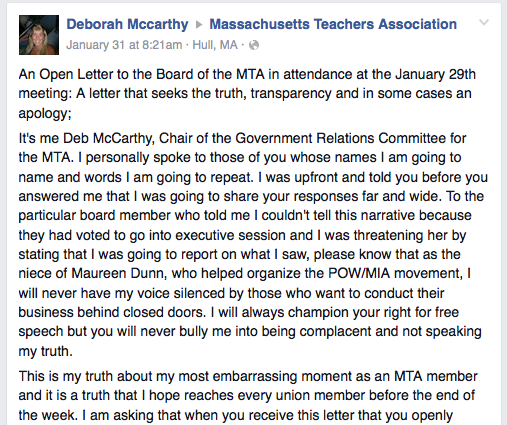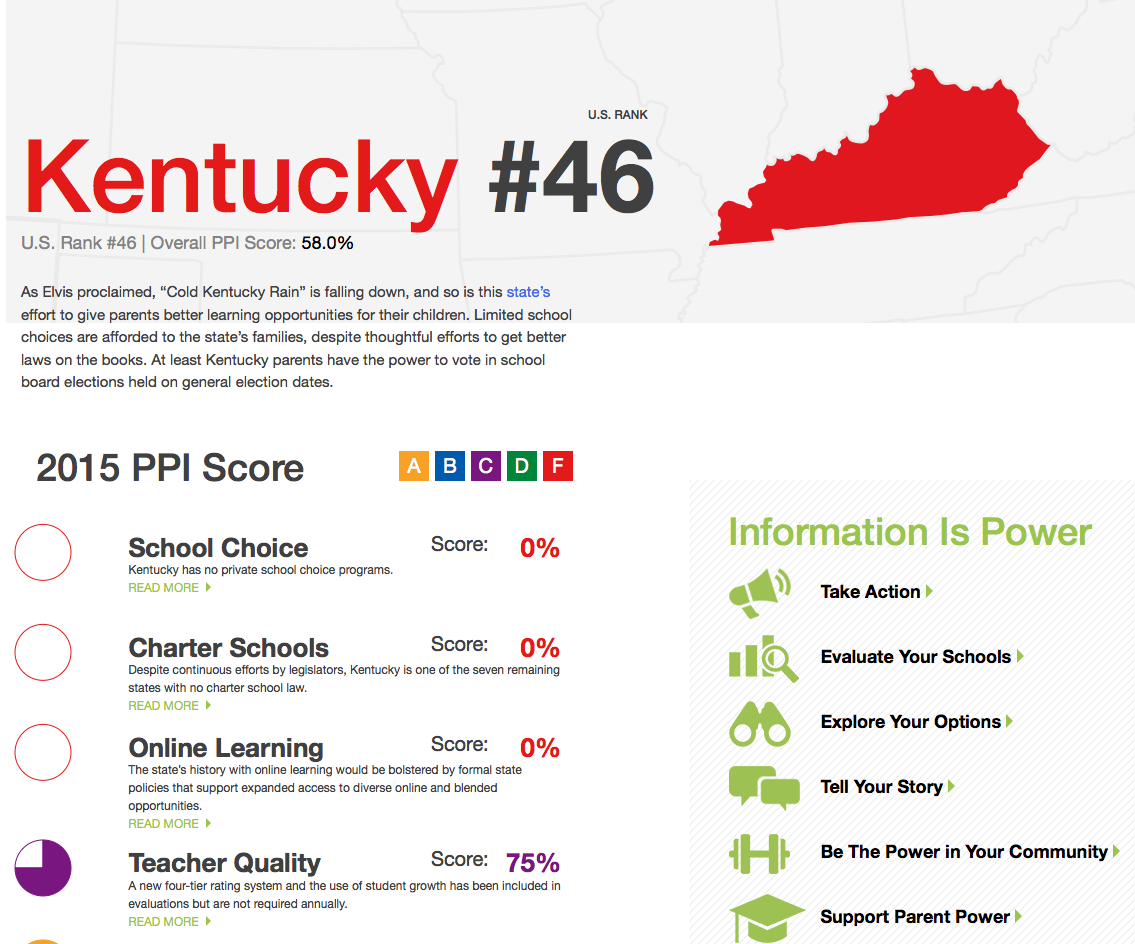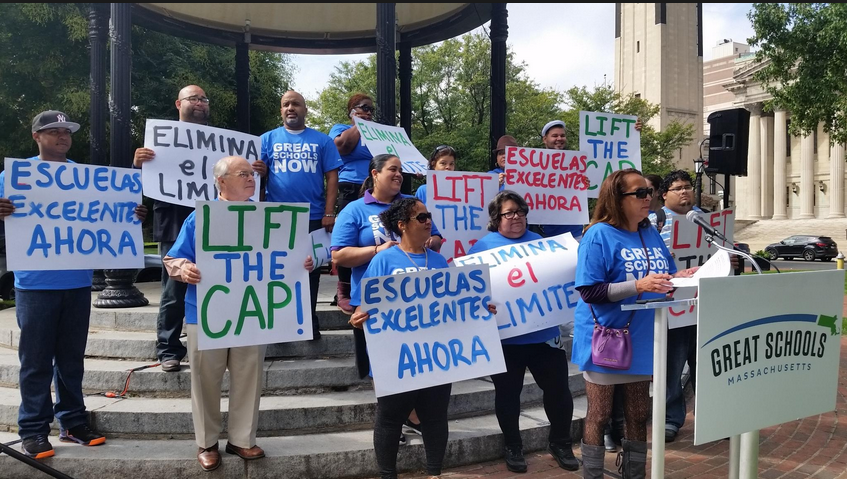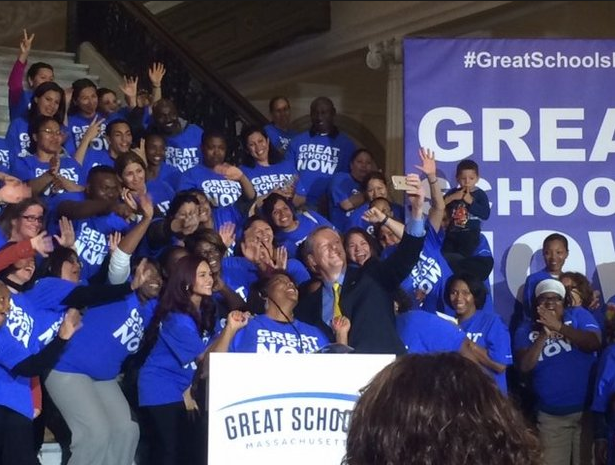by Jeanne Allen, CER Founder & President Emeritus
February 10, 2016
As the American people are digesting the results of the 2016 New Hampshire primary, and the news media are acting like the contest for president is over, a reminder of how Democracy in America works in is order.
Over 150 years ago, de Tocqueville called the four-year cycle of presidential elections a “revolution… in the name of the law,” writing:
“Long before the appointed day arrives, the election becomes the greatest, and one might say the only, affair occupying men’s minds… As the election draws near, intrigues grow more active and agitation is more lively and widespread. The citizens divide up into several camps… The whole nation gets into a feverish state…”
Wait, you mean that this isn’t the first year people wanted to send a message? The reality is that – thankfully, for the cause of education – the New Hampshire primary is just the beginning. Democracy matters, and for the media and the pundits to begin to declare winners and losers long before November is an assault on what we stand for: knowledge and the cause of opportunity for all Americans.
Those of us engaged in education know that knowledge matters. In the spirit of knowledge (as well as improving the institutions that help many arrive at such knowledge, namely schools), here are a few American government basics for the voters (and a candidate or two?) of what this Democracy in America that de Tocqueville reported is all about:
1. Many people feel disenfranchised, lacking basic education, work, housing and support. “If ever freedom is lost in America,” de Tocqueville cautioned, “that will be due to the … majority driving minorities to desperation…” But our common sense, he predicted, would most often prevail.
2. Despite widespread frustration with the status quo, and a very conflicted populous that changes their opinions day to day, New Hampshire is a state, not a nation. The great democratic contest for the next president goes on for another nine months. (Sorry candidates – it’s not over!)
3. Presidents do not abolish agencies. Congress makes laws, presidents execute. Even abolishing agencies – say the Department of Education – does nothing to the programs that exist within them. You want to change education? You change state laws. Presidents can lead, recommend and cajole, not end state or federal efforts. Even a united Congress has difficulty doing that.
4. Saying education should be about local control ignores the fact that the only people who have the control are school boards and teachers unions. Assigning children based on zip codes bestows no power on those who need it the most – parents. This has been the case since 1965, unless states have pushed those institutions to reform or adopt various charter school or choice programs.
As we move toward the next round of contests, let’s check our candidates every step of the way on what matters most to making education – and by extension our nation — great. Rather than responding to aspirational talk, for starters, we should be asking:
- What is education and why does it matter?
- Precisely what do you know about how the government functions in and around education, and what would you do to make it work for the people?
- What have you done to create more educational equality, as well as quality options, for kids? What would you do?
For the guardians of education reform, there has never been a more important moment in history. Let’s be educated about the stakes, and educate our neighbors and our fellow citizens to distinguish between the reality and the rhetoric.















 se gridiron warriors, advocates of school choice in Kentucky have struggled and persisted in their efforts to enact a charter school law.
se gridiron warriors, advocates of school choice in Kentucky have struggled and persisted in their efforts to enact a charter school law. 

 by Jeanne Allen
by Jeanne Allen

On Elections, the Impact of New Hampshire, and the Importance of Education
by Jeanne Allen, Founder & President Emeritus
As the American people are digesting the results of the 2016 New Hampshire primary, and the news media are acting like the contest for president is over, a reminder of how Democracy in America works in is order.
Over 150 years ago, de Tocqueville called the four-year cycle of presidential elections a “revolution… in the name of the law,” writing:
“Long before the appointed day arrives, the election becomes the greatest, and one might say the only, affair occupying men’s minds… As the election draws near, intrigues grow more active and agitation is more lively and widespread. The citizens divide up into several camps… The whole nation gets into a feverish state…”
Wait, you mean that this isn’t the first year people wanted to send a message? The reality is that – thankfully, for the cause of education – the New Hampshire primary is just the beginning. Democracy matters, and for the media and the pundits to begin to declare winners and losers long before November is an assault on what we stand for: knowledge and the cause of opportunity for all Americans.
Those of us engaged in education know that knowledge matters. In the spirit of knowledge (as well as improving the institutions that help many arrive at such knowledge, namely schools), here are a few American government basics for the voters (and a candidate or two?) of what this Democracy in America that de Tocqueville reported is all about:
1. Many people feel disenfranchised, lacking basic education, work, housing and support. “If ever freedom is lost in America,” de Tocqueville cautioned, “that will be due to the … majority driving minorities to desperation…” But our common sense, he predicted, would most often prevail.
2. Despite widespread frustration with the status quo, and a very conflicted populous that changes their opinions day to day, New Hampshire is a state, not a nation. The great democratic contest for the next president goes on for another nine months. (Sorry candidates – it’s not over!)
3. Presidents do not abolish agencies. Congress makes laws, presidents execute. Even abolishing agencies – say the Department of Education – does nothing to the programs that exist within them. You want to change education? You change state laws. Presidents can lead, recommend and cajole, not end state or federal efforts. Even a united Congress has difficulty doing that.
4. Saying education should be about local control ignores the fact that the only people who have the control are school boards and teachers unions. Assigning children based on zip codes bestows no power on those who need it the most – parents. This has been the case since 1965, unless states have pushed those institutions to reform or adopt various charter school or choice programs.
As we move toward the next round of contests, let’s check our candidates every step of the way on what matters most to making education – and by extension our nation — great. Rather than responding to aspirational talk, for starters, we should be asking:
For the guardians of education reform, there has never been a more important moment in history. Let’s be educated about the stakes, and educate our neighbors and our fellow citizens to distinguish between the reality and the rhetoric.